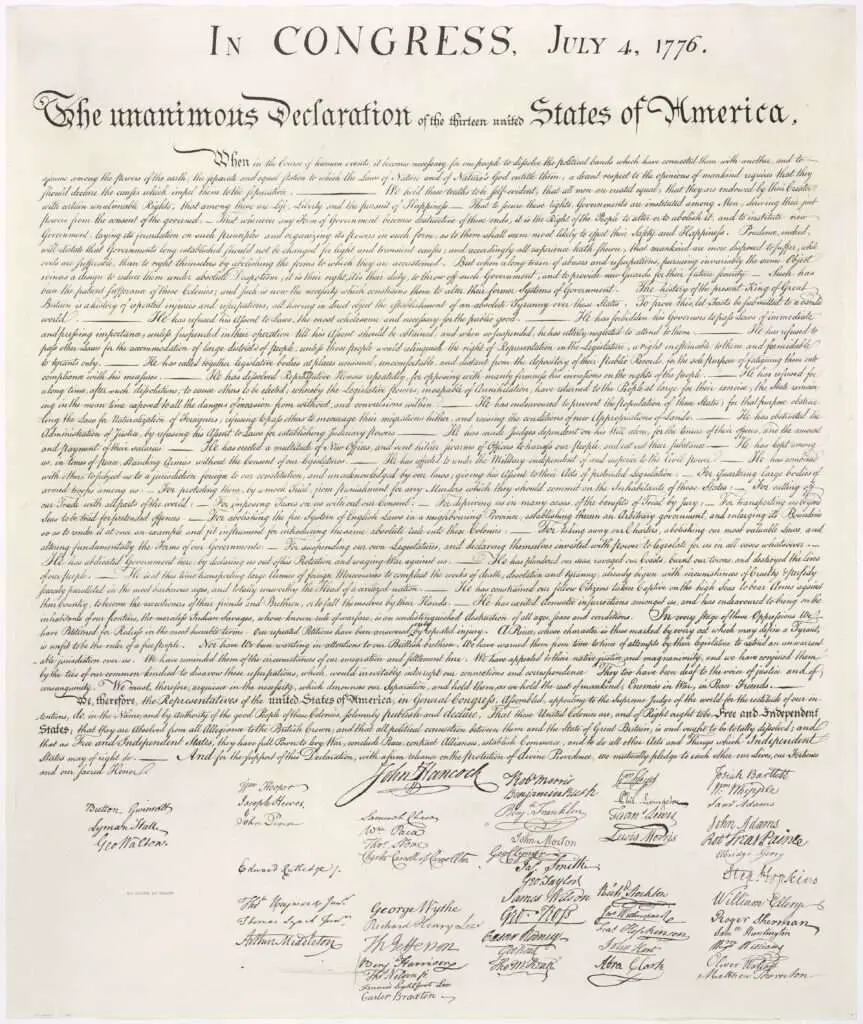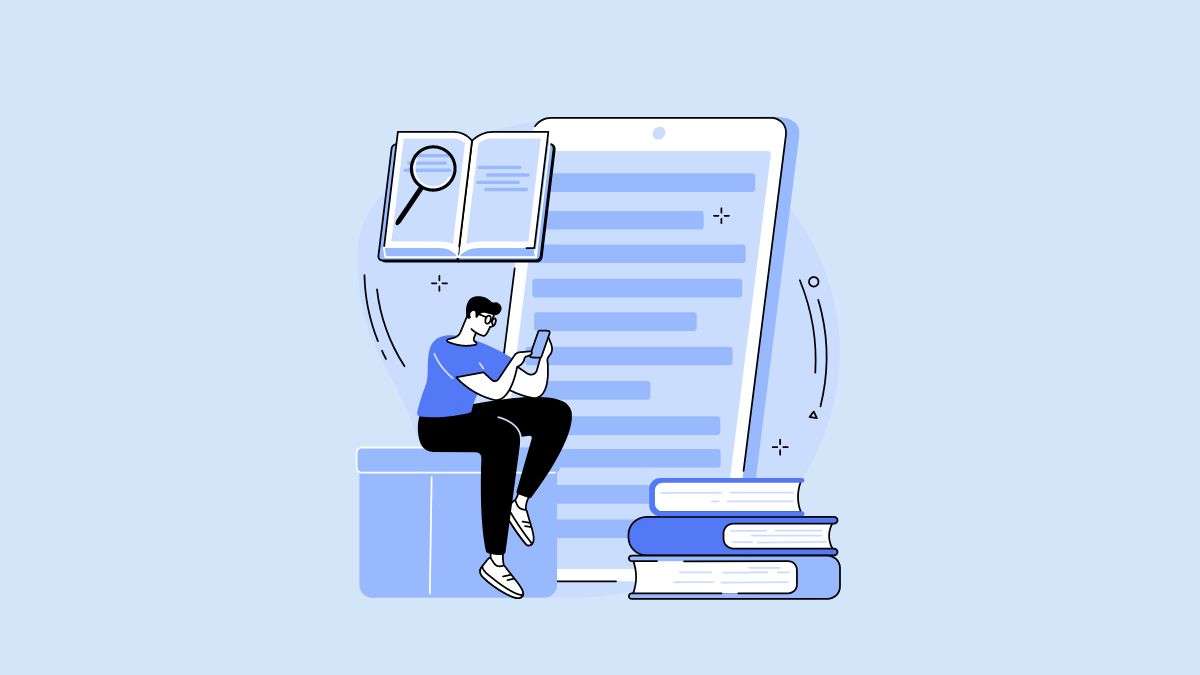Table of Contents
- Introduction
- The Story Behind the First Ebook Published
- The Declaration of Independence
- Project Gutenberg and Michael S. Hart
- Conclusion
Introduction
This write-up introduces the first ebook published and the intriguing story behind it. The genesis of ebooks is a fascinating story that has shaped how we read, write, and access information in the digital age. We will explore the earliest beginnings of ebooks, from the creation of the very first ebook to the pioneering work of Project Gutenberg in making literature accessible online.
Understanding how ebooks came to be allows us to appreciate the evolution of digital publishing and how revolutionary this technology was at its inception. The first ebook published opened new possibilities for making content portable, searchable, and readily available to anyone with a computer. Learning this history reveals the visionaries behind ebooks and the technical breakthroughs necessary to transform the concept into reality.
The writing will be an intriguing journey, unveiling milestone after milestone in the genesis of ebooks. Along the way, we’ll meet pioneers like Michael S. Hart, whose work at Project Gutenberg heralded a new era for books and reading. We’ll learn about early ebook hardware and software that laid the foundation for Kindle and iBooks. Most importantly, we’ll appreciate how far ebooks have come while imagining how they might continue to evolve.
Significance of Understanding the Very First Ebook Published
Appreciating the earliest beginnings of ebooks allows us to understand how groundbreaking and forward-thinking their inception truly was. When the first ebook published was made available, it was rudimentary, and digitizing content for screens was still very novel and unproven.
Those first ebook creators displayed tremendous vision in recognizing the vast potential of the new digital format. Their pioneering work paved the way for ebooks to become the versatile, accessible reading option we know today across devices and platforms. It’s inspirational to learn about those ebook trailblazers who saw possibilities where others only saw impossibilities at the time.
Engaging Readers in the Ebook History Journey
The subsequent sections aim to educate and engage readers by chronicling the critical milestones in ebook history. The story of how ebooks came to be is full of fascinating anecdotes about technological innovations that seemed revolutionary at the time.
You will learn about early ebook hardware that now seems clunky and primitive with today’s sleek tablets and e-readers. We’ll be immersed in the visionary thinking of pioneers who imagined a digital future for books long before the technologies caught up. These entertaining glimpses into ebook history are designed to spark our imagination just as those early ebook innovators were inspired.
Whether you’re a lifelong reader who remembers pre-Kindle days or a young digital native who can’t imagine a world without ebooks, this write-up promises a captivating journey into a story you didn’t know. Let’s embark on reading about the history of reading digitally.
The Story Behind the First Ebook Published
The United States Declaration of Independence became the first ebook published in 1971 under Project Gutenberg, founded by Michael S. Hart.
The concept of an ebook first emerged in the early 1970s as personal computers became more accessible. Hart typed the text of the Declaration of Independence into his computer to create what is considered the world’s first ebook. This groundbreaking development was made possible by advancements in digital storage, processing power, and display technologies in the preceding years.
Hart’s primitive ebook could only be viewed on very specific computer setups. However, it set the stage for future innovations to make digital books more portable, accessible, and mainstream. Although initial ebook reading devices provided a lackluster reading experience compared to print, steady improvements ultimately enabled the takeoff of ebook popularity in the late 2000s.
Pioneering Digital Publishing
Michael S. Hart’s first ebook published, the Declaration of Independence, represented a pioneering proof of concept for publishing content digitally. By taking a historically significant document and transforming it into bits and bytes that could be stored and read on personal computers, Hart set in motion the genesis of modern ebook publishing.
This early experimentation highlighted the potential for computers and personal computing devices to expand access to information radically. It laid the foundation for future ebook releases, eventually providing the masses with portable, affordable, and abundant literature.
Inspiring the E-reader Revolution
Although primitive by today’s standards, this very first ebook published inspired technology companies and innovators to continue improving digital reading experiences. Steady enhancements in display technology, storage capacity, processing speed, and battery efficiency throughout the 1990s and 2000s enabled e-readers to become sufficiently usable alternatives to print books.
Amazon’s launch of the first Kindle device in 2007 marked a significant milestone that catalyzed mainstream ebook adoption. By 2010, Amazon was selling more ebooks than hardcovers as e-readers like the Kindle finally unlocked the promise of digital book publishing originally shown by Project Gutenberg four decades earlier.
The Declaration of Independence
The United States Declaration of Independence is a historic document that marked the formal assertion of independence from British rule by the Thirteen Colonies in America. Adopted by the Second Continental Congress on July 4, 1776, the Declaration articulated the colonies’ grievances against King George III and expressed the philosophical underpinnings of a new sovereign nation based on the principles of liberty, equality, and self-governance.
The Declaration of Independence holds profound significance both historically and symbolically. It was an act of political courage and vision, asserting the right of people to overthrow a government that did not protect their fundamental rights.
The document’s preamble, which begins with the famous phrase “We hold these truths to be self-evident, that all men are created equal,” has become a timeless statement of human rights. Its assertion that governments derive “their just powers from the consent of the governed” laid the foundation for modern democratic governance.
The story behind the Declaration of Independence is one of escalating conflict between the American colonies and Great Britain. Throughout the 1760s and early 1770s, the British Parliament imposed taxes and regulations on the colonies, such as the Stamp Act and the Townshend Acts, which were met with resistance and protest. The Boston Tea Party of 1773, a direct action against taxation without representation, further heightened tensions.
In response to colonial defiance, Britain enacted punitive measures known as the Coercive Acts, which led to the convening of the First Continental Congress in 1774. As hostilities broke out in 1775 with the battles of Lexington and Concord, the Second Continental Congress convened. Initially divided on independence, the Congress gradually moved toward a break with Britain, spurred by factors such as Thomas Paine’s pamphlet “Common Sense,” which argued forcefully for independence.
The drafting of the Declaration was primarily the work of Thomas Jefferson, who was appointed to a committee alongside John Adams, Benjamin Franklin, Roger Sherman, and Robert R. Livingston. The committee and Congress revised Jefferson’s draft before its final adoption. On July 4, 1776, the Declaration was officially adopted, though all delegates did not sign it until later.

This document not only announced the birth of a new nation but also set forth a vision of a society based on individual freedoms and democratic ideals. The impact of the Declaration of Independence has extended far beyond the American Revolution, influencing numerous other movements for independence and human rights around the world.
Unveiling the Role of the Declaration of Independence
The Declaration of Independence was apt for the inaugural Project Gutenberg ebook. As one of America’s founding documents, it carried great historical and cultural significance. By digitizing the Declaration, Hart demonstrated how ebooks could make valued texts available to more people.
Transforming the Declaration into the First Ebook Published
Ebook technologies in the 1970s were primitive, almost non-existent. Hart had to manually type the full text of the Declaration of Independence into a computer file. At the time, optical character recognition technology did not yet exist to scan and digitize printed works quickly. Despite the laborious process, Hart persevered, setting an important precedent for digitizing culturally essential works.
Implications for Accessibility and Preservation
The ebook version of the Declaration of Independence launched by Project Gutenberg carried meaningful implications. It represented a vision of using technology to make information free and widely accessible. By digitizing valuable historical content, Project Gutenberg took critical early steps toward digital preservation.
Project Gutenberg and Michael S. Hart
Project Gutenberg, founded in 1971 by Hart, was instrumental in pioneering the digitization and dissemination of books in electronic form. Hart, then a student at the University of Illinois, envisioned making the world’s literature freely available to all by typing and formatting books into digital files that could be easily shared.
Project Gutenberg began with the conversion of the Declaration of Independence into what was to become the first ebook published. This groundbreaking act laid the foundation for the project’s mission to digitize cultural works and encourage the creation and distribution of ebooks.
Over the next four decades, Project Gutenberg vastly expanded, with thousands of volunteers digitizing tens of thousands of books. By making these materials freely available outside of copyright restrictions, Project Gutenberg enabled unprecedented access to literature and reference materials for people worldwide.
As the founder of Project Gutenberg, Hart was the driving innovator behind the earliest days of ebooks. He personally typed hundreds of books and oversaw the technical development and organization of Project Gutenberg in its foundational years.
Hart was a pioneer in recognizing the potential for computers and the internet to revolutionize book publishing and reading. His efforts to convert literature into digital form and make it freely available online laid the groundwork for many aspects of modern ebooks.
Project Gutenberg and Michael Hart brought the idea of electronic books into reality and public consciousness long before e-readers and tablets. By proving the immense power of digitized content and online access, they paved the way for mainstream consumer adoption of ebook technology.
Project Gutenberg remains a leading force in the ebook world, with over 70,000 (and counting) free ebook titles in its online library. This vast collection preserves important literature and provides a model of open access digital publishing.
Conclusion
The first ebook published, the Declaration of Independence, was a watershed moment in the history of publishing, representing a bold leap into the uncharted digital realm. The digitization of the Declaration of Independence by Michael S. Hart and the subsequent founding of Project Gutenberg marked the beginning of an ongoing revolution in how we access, read, and preserve literature.
This pioneering effort showcased the potential of ebooks to democratize access to knowledge and culture. It laid the groundwork for the development of e-reader devices and platforms that have since transformed the reading habits of millions around the globe. From the initial cumbersome and rudimentary formats to today’s sophisticated digital books, ebooks have come a long way, offering convenience, portability, and an ever-expanding library at our fingertips.
The vision and dedication of early innovators like Hart have had a lasting impact, inspiring further technological advancements and reshaping the cultural landscape. The evolution of ebooks continues to challenge our notions of what it means to read and own a book, encouraging us to embrace new ways of thinking about information dissemination and consumption.
As we look back on the origins of the ebook, we are reminded of the power of human ingenuity and the importance of preserving and sharing knowledge. The story of the ebook is one of progress and promise. This narrative underscores the significance of open access to information and the enduring value of literature in our lives.
As Project Gutenberg and other digital libraries thrive, they carry forward the spirit of innovation and accessibility that began with a single digital file over half a century ago, ensuring that the world’s literary heritage remains alive and accessible for future generations.

1 thought on “The First Ebook Published”